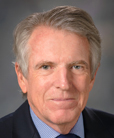New Pilot Program Bundles Cancer Care Payment
MD Anderson and UnitedHealthcare have launched a new pilot program for bundled cancer care payments.
- There is no question that paying ongoing care can be a challenge for some patients, even with insurance. Patients dealing with cancer, for example, have expensive tests, long-term treatments, follow-up care and supportive services that need to be paid for.

This type of challenge has some healthcare payers and providers looking for new ways to handle payments. It was announced last month that the University of Texas MD Anderson Cancer Center and UnitedHealthcare have partnered to launch as pilot program that explores a new cancer care payment model for head and neck cancers that focuses on quality patient care and outcomes. This is the first time that a bundled payment method that reimburses a care provider for a defined episode of care under a single fee or payment had been tried at a large, comprehensive cancer center.
In an interview with RevCycleIntelligence.com, Thomas Feeley, M.D., head of Anesthesiology and Critical Care, and head of the institute, spoke about how the pilot program came to be and why it is important.
According to Feeley, MD Anderson Cancer Center’s Institute for Cancer Care Innovation and UnitedHealthcare discussed the possibility of doing a pilot for a new payment model for some time. Both groups share a common goal of providing quality care while managing costs and the pilot was officially launched in November 2014 at MD Anderson.
This is something that MD Anderson and its care center have been examining for the last five years. The new pilot will last three years and deal only with about 150 patients newly diagnosed with cancers of the salivary glands, oral cavity, throat and larynx, and who are enrolled in certain employer-sponsored benefit plans insured or administered by UnitedHealthcare.
“This pilot reflects the first major look at a change in reimbursement for cancer care in many years,” Feeley said. He added that differs from the current fee-for-service model because: “under the pilot program, MD Anderson will not be paid for every visit and procedure but for all the care over a fixed period of time.”
According to Feeley, cancer offers unique challenges for patients because of the sheer number of obstacles that need to be overcome. Not only are their doctor’s visits to pay for, but every procedure, test and treatment – including chemotherapy, surgery or radiation therapy or a combination of the three – that follows. This process can happen over a span of many month. On top of that, there are follow-up visits with any number of providers and specialists. Now, instead of multiple “confusing statements,” patients in the program will receive one comprehensive bill.
“[MD Anderson] have been looking at how to best approach a single price for treating cancers. It is a complex question because cancer is a complex disease and each patient unique,” said Feeley. “Bundled pricing is something that patients and care providers want, and this is our first opportunity to better understand how we can manage costs without sacrificing quality care and patient outcomes.”
Feeley added that while this pilot is starting with cancer centers, if successful it could be applied other practice settings. Ultimately, it is believed that this is a better way to pay for value.
“Our partnership with MD Anderson Cancer Center marks an important step toward expanded bundled care payment models and away from the traditional fee-for-service payments for oncology care,” Lee Newcomer, M.D., United Healthcare’s vice president, oncology, said in the press release about the . “Our recently completed pilot shows that these creative new cancer care payment models can reduce healthcare costs while improving patient outcomes. MD Anderson’s work with value-based workflows makes them a natural partner for bundled payments.”
Patients who are a part of the pilot program will get the exact same care if they were not a part of the program paying for fee-for-service. Feeley said that clinicians will not know who is or isn’t in the bundle pilot. Instead, both groups will be examined to determine the economic impact of the pilot.
Ultimately, this is new territory for both sides as the pilot will test the feasibility of bundling. With an increased focus on value-based care, pilot programs like this will become more common.
